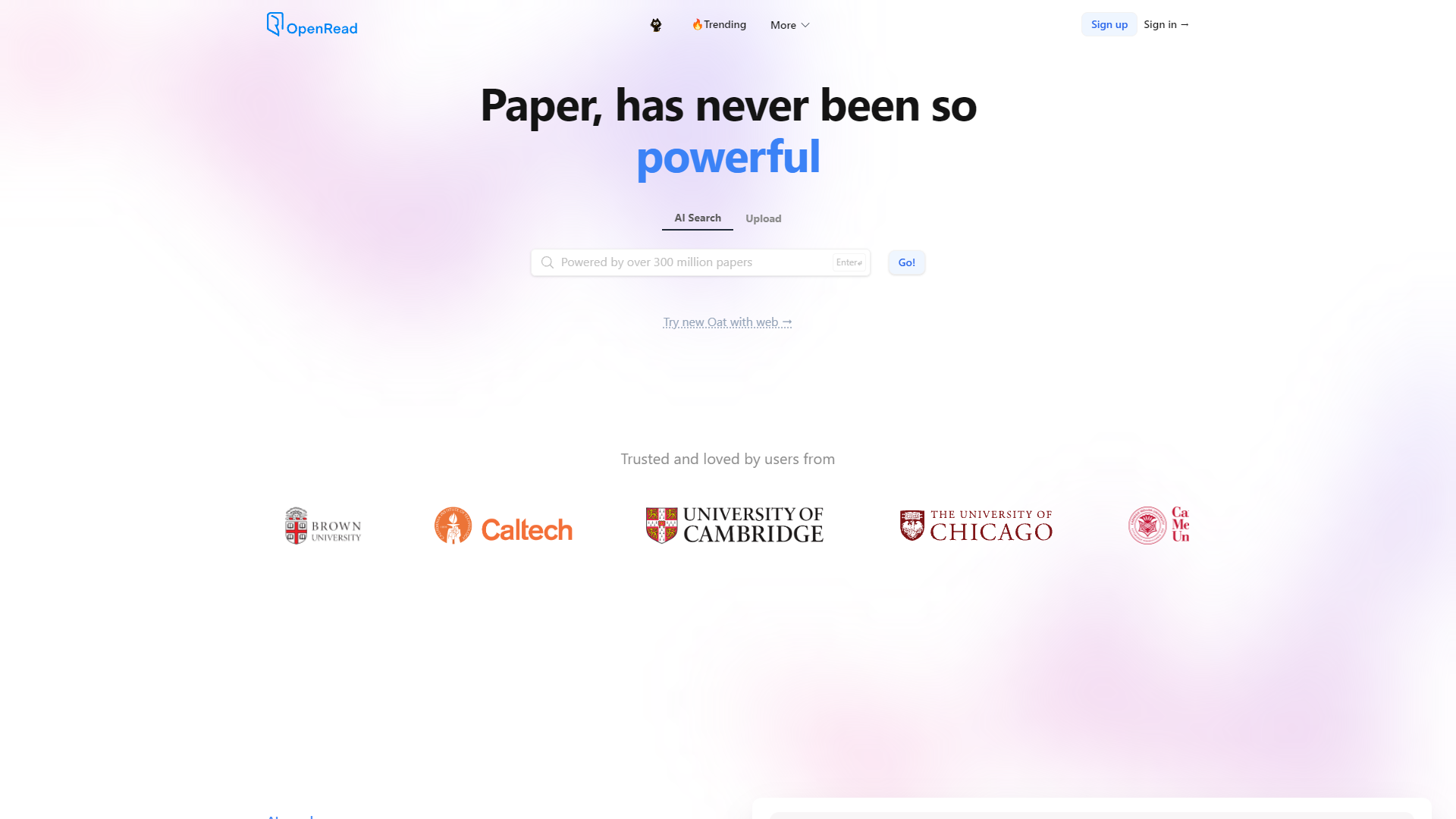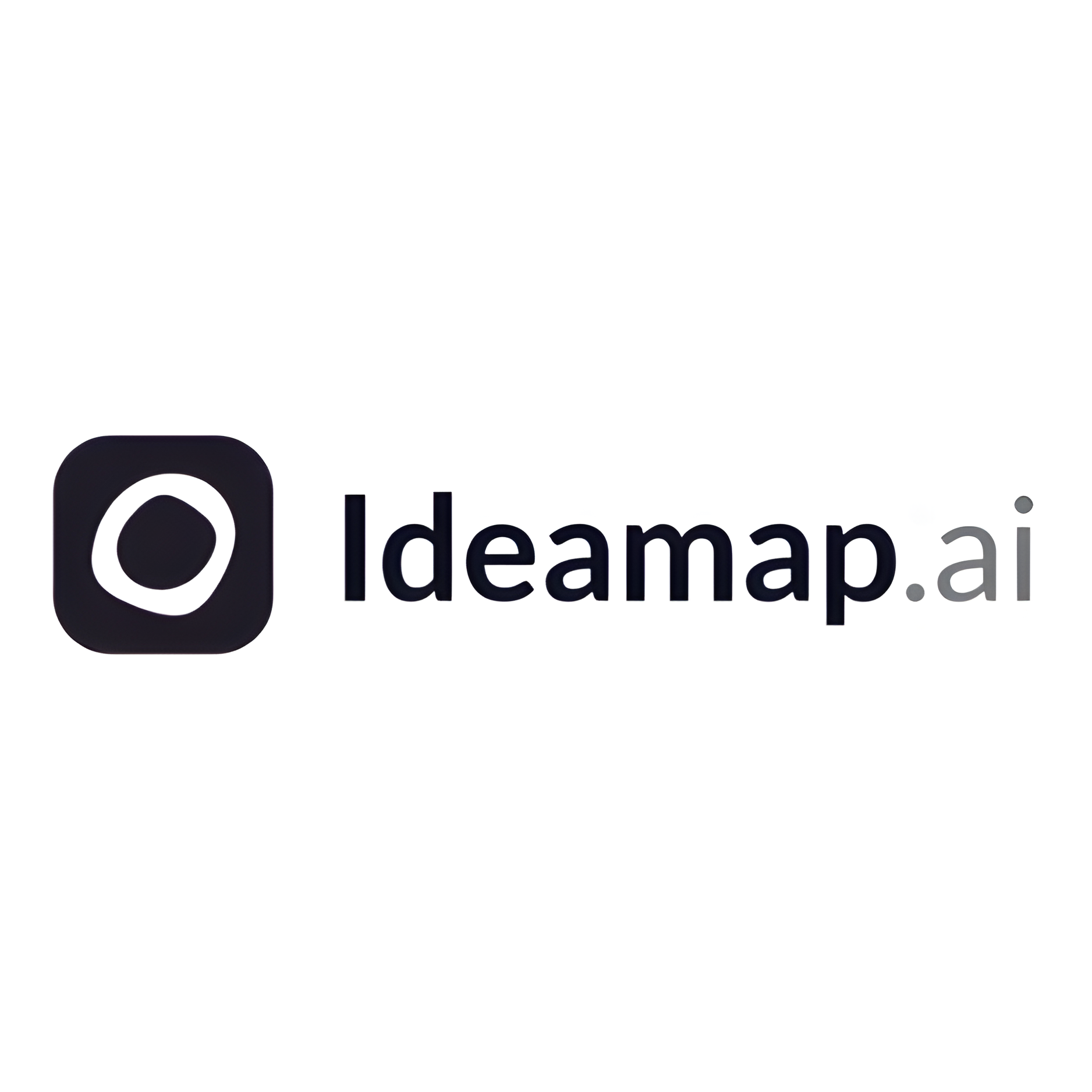Overview
OpenRead Academy is a cutting-edge platform tailored to enhance the academic research landscape. With access to over 300 million academic papers, the platform utilizes advanced AI technology to optimize research efficiency. Its AI-assisted search feature swiftly pinpoints relevant studies, complemented by real-time updates on new publications to keep users informed of the latest academic advancements.
A standout feature of OpenRead Academy is its visual mapping tool, which illustrates the interconnections between various academic papers, aiding researchers in uncovering new insights and potential areas for further study. The platform also includes an integrated note-taking function, allowing users to organize their thoughts and findings effectively within the interface.
Adding to its robust features, OpenRead introduces Oat, a personalized AI research assistant. Oat enhances the research process by summarizing papers, answering queries, fact-checking, and tracking user interactions, thereby simplifying the navigation through extensive data sets. Furthermore, the platform's integration with real-time data ensures that researchers have access to the most current information, crucial for staying competitive in dynamic academic fields.
Overall, OpenRead Academy is an essential tool for researchers, academics, and students, designed to improve the speed and quality of research through a blend of AI-driven tools and practical, user-centric features.
Key features
- AI-assisted search: Utilizes advanced AI to help users quickly find relevant academic papers, enhancing research efficiency and accuracy.
- Real-time publication updates: Keeps users informed with the latest academic papers and trends, ensuring they have access to the most current research.
- Visual mapping tool: Displays how academic papers are interconnected, aiding in the discovery of new insights and potential research paths.
- Note-taking integration: Allows users to take and organize notes directly within the platform, streamlining the research process and idea management.
- Oat AI research assistant: Offers functionalities like summarization, question answering, and fact-checking to simplify complex research tasks.
- Real-time data integration: Provides continuous updates and learning opportunities, tailored to individual research needs and preferences.
 Pros
Pros
- Customizable user interface: Allows users to personalize their workspace, enhancing comfort and productivity by adapting the layout to fit individual preferences and needs.
- Collaborative features: Enables multiple users to work on the same project simultaneously, facilitating teamwork and the exchange of ideas in real-time.
- Advanced filtering options: Provides robust filtering tools to refine search results by date, relevance, citation count, and more, making research more precise and targeted.
- Multi-language support: Offers the platform in various languages, making it accessible to a global audience and reducing language barriers in research.
- Offline access capability: Allows downloading of papers and notes for offline review, ensuring that research can continue even without internet access.
 Cons
Cons
- Complex interface: The multitude of advanced features like AI search and real-time updates can overwhelm new users, making the initial learning curve steep.
- Dependence on connectivity: Real-time functionalities such as publication updates and data integration require constant internet access, limiting offline usability.
- AI accuracy concerns: While AI assists in research, its outputs can sometimes lack the nuance and depth that manual research offers, potentially affecting research quality.
- Information overload: The continuous influx of updates and data can lead to information overload, making it challenging for users to focus on relevant research.
- Privacy issues: With extensive note-taking and data integration features, there are potential concerns regarding the privacy and security of user data.

















